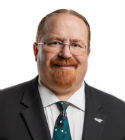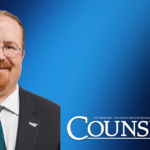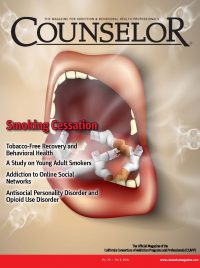Share
Peer Coaches and Sponsors
As treatment for addiction becomes more mainstream and acceptable to society, professionals, clients, and the public are facing an increasing variety of options for one-on-one support during and after treatment of substance use disorder (SUD). Likewise, good-meaning people are stepping up to the plate to obtain education and training to provide vital support services that have shown efficacy in improving long-term recovery outcomes.
As with all emerging professions, the path to consistent professional standards can take many twists and turns as “storming, forming, and norming” processes play out. Unfortunately, this can create confusion, a false sense of security regarding the competence levels of these professionals, and avenues for unscrupulous actors to “sell” services that may be ineffective or even harmful. At risk of offending those in the trenches of working out standards for professional coaches and peer support, I feel it is important to consider some basic distinctions between the roles of professional coaches, peers, and sponsors so that we can all speak the same language as we move forward.
With the peer movement expanding rapidly, there seems to be some confusion around some of the terms used to designate the type of professional and expected services one could receive from peer support specialists and professional recovery coaches. Peer support encompasses a range of activities and interactions between people who share similar experiences (also known as “lived experiences”). Peers face similar challenges with brain health (also known as “mental health”), SUDs, or both, to the peers they are assigned to work with. Typically peers will have specialized training and be employed by a treatment or recovery program to deliver peer services. Individuals providing these services are commonly known as “peer support recovery specialists,” “peer support specialists,” “certified peer support specialists,” “peer coaches,” or “peer advocates.”
There are various types of peers, reflected by who they assist and whether they are qualified to provide services to persons with mental health diagnoses, SUDs, or both. SUD peer support specialists should be certified by an International Certification and Reciprocity Certification (IC&RC) member board to ensure competency, to demonstrate understanding of privacy and ethical considerations, and to understand scope of practice delineations. Peer support specialists should not be dually credentialed as counselors or therapists due to the conflict of scope of practice and codes of conduct. An excellent resource of the scope and responsibilities is The Peer Specialist’s Pocket Resource for Mental Health and Substance Use Services by Charles Drebing (2016).
Professional recovery coaching, which is similar to life coaching, is a professional distinction that is frequently added to the certified drug and alcohol counselor or licensed therapist credential. Many organizations offer credentials for recovery coaches. Reputable ones include the Recovery Coach Academy, NET Training Institute, and the International Coach Federation, to name a few. An excellent resource to find out about coaching and the role of coaching is Recovery Coaching: A Guide to Coaching People in Recovery from Addictions by Melissa Killeen (2020).
Unlike professional recovery coaching, which may be provided in a private practice setting, peer support or peer coaching should never be delivered in a private practice setting or independently operated. It can only be safely delivered with supervision and under the umbrella of an addiction treatment or recovery program. Simply put, the role of peer support specialists is one of targeted service where decisions about care are made by the treating organizations, and professionals providing the services are given broad support and guidance regarding professional boundaries, limitations regarding appropriate approaches to “helping,” and continuous supervision. Recovery coaching is a designation that demonstrates that credentialed professionals have obtained specialized training to blend life skills management with active recovery programming in an independent manner.
While both coaching and peer support may utilize certain aspects common between Twelve Step sponsors and those who are sponsored, all sponsors, regardless of affiliation, are urged to stay vigilant when the complex needs of people with addiction head toward therapy, as opposed to learning and teaching the principals of the mutual-aid organization. Although mutual-aid groups pride themselves in informality, a good reference for sponsors is The Sponsor’s Twelve Step Manual: A Guide to Teaching and Learning the Program of AA by John E. (2012). Additionally, as we move forward in this brave new world of peer-to-peer services, the temptation to accept any financial reward for sponsorship must remain taboo.
References
- Drebing, C. (2016). The peer specialist’s pocket resource for mental health and substance use services (2nd ed.). Morrisville, NC: Lulu.
- E., J. (2012). The sponsor’s Twelve Step manual: A guide to teaching and learning the program of AA. Scotts Valley, CA: CreateSpace.
- Killeen, M. (2020). Recovery coaching: A guide to coaching people in recovery from addictions (2nd ed.). Scotts Valley, CA: CreateSpace.
About Me
Pete Nielsen is the President & Chief Executive Officer for the California Consortium of Addiction Programs and Professionals (CCAPP), CCAPP Credentialing, CCAPP Education Institute, and the National Behavioral Health Association of Providers (NBHAP). CCAPP is the largest statewide consortium of addiction programs and professionals, and the only one representing all modalities of substance use disorder treatment programs. NBHAP is the leading and unifying voice of addiction-focused treatment programs nationally. Mr. Nielsen has worked in the substance use disorders field for 20 years. In addition to association management, he brings to the table experience as an interventionist, family recovery specialist, counselor, administrator, and educator, with positions including campus director, academic dean, and instructor.
Mr. Nielsen is the secretary of the International Certification and Reciprocity Consortium and the publisher for Counselor magazine. He is a nationally known speaker and writer published in numerous industry-specific magazines. Mr. Nielsen holds a Master of Science in Counseling Psychology and a Bachelor of Science in Business Management.












 Counselor Magazine is the official publication of the California Association of Addiction Programs and Professionals (CCAPP). Counselor offers online continuing education, article archives, subscription deals, and article submission guidelines. It has been serving the addiction field for more than thirty years.
Counselor Magazine is the official publication of the California Association of Addiction Programs and Professionals (CCAPP). Counselor offers online continuing education, article archives, subscription deals, and article submission guidelines. It has been serving the addiction field for more than thirty years.